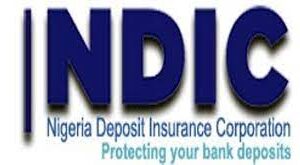Isiyaku Ahmed is the secretary of the Kano State Budget Working Group, a coalition of NGOs working to promote active citizens participation in budget processes. He speaks to ADAM ALQALI on how their effort is making people in rural parts of Kano state, aware of budget processes towards entrenching transparency and accountability in governance.
What is the Kano State Budget Working Group about?
The Kano State Budget Working Group is a platform that brings together civil society organizations and development partners working in the area of governance to ensure the Kano state government’s budgets are realistic and are tracked from conception to implementation stages by involving citizens in the processes.
The idea of the Budget Working Group came about after the 2016 Kano State Appropriation Bill was passed into law and as civil society organizations, we, members of the Voice and Accountability Platform (VAP), Kano Budget Partners (KBP) and the Budget Tracking Group look at it critically and realized it was not realistic because of its ambitious nature.
We also looked at the Open Budget Index in which Kano state was scored low as there was no citizens’ participation and budget documents were not available to the public. So, we came together under the umbrella body of the budget working group to ensure there was improvement in the state’s 2017 budget and we have since then been working to bring about active citizens’ participation in budget processes by ensuring budget documents are available to the general public as well as ensuring transparency and accountability in the process.
Therefore, when the circular for the 2017 budget was released the group quickly swing into action and because we are more concerned about the rural areas we mapped out about 36 rural Local Government Areas (LGAs) and went to many communities across the 36 LGAs to educate the people about budget and its various processes and got their inputs including what they wanted to be included in the 2017 budget across different areas like health, education, agriculture, youth and gender issues.
We were able to generate a lot of inputs which we later sat down and analyzed and then came up with a document which we submitted to the different Ministries, Departments and Agencies (MDAs) of the state including the Ministry of Budget and Planning and office of the Speaker of the Kano State House of Assembly as well as media houses.
How has it been trying to educate people in remote rural areas about budget processes and giving them the opportunity to participate in governance processes by making their inputs in budget processes?
It will amaze you to know that people in the rural areas do not even know that they have a right to participate in budget processes; they don’t even know what budget is about and how it works. All they know is that every year there is a budget and it ends there. So, we educated them about the fact that they could contribute to budget processes and they were happy that they were being educated about the whole process.
As such, the journey has been an interesting and exciting one because they are now enlightened and now that the 2017 appropriation bill has been presented to the Kano State House of Assembly by the governor of Kano state, there will be a public hearing and we are going to invite people from these communities to see if their inputs have been incorporated in the proposed budget as well as be able to make inputs at the public hearing.
To be honest, things are changing, people are now not only beginning to know what a budget is but they also know that they can participate in budget processes including the exact places to go and submit their queries, in case they have any.
Like you said, the governor of Kano state has recently presented the 2017 appropriation bill to the state house of assembly. What do you make of it?
The budget statement that was just submitted to the assembly by the governor is something that we as civil society are very proud of. This is because for the first time, we have seen a budget that is close to what we can call a realistic budget as a lot of things were taken into consideration in its conceptualization including the fact that there is a civil society and citizens input in its conception and the fact that the projected Internally Generated Revenue (IGR) seems to be realistic.
As a person, I think the budget is one of a kind, I therefore hope the government will put all necessary machineries and modality in place to ensure it is successfully implemented. And now that the budget has been presented we hope that the government will not forget the efforts of the civil society and community members such that just like we started the process together the government will again work with us in driving the process to successful completion.
As a group what can you say are the major challenges inhibiting your work?
The major challenge I will say is human resource as well as the level of awareness and education at community level but we are glad that we have been able to conduct town hall meetings; and we have also been able to host radio programs about the issue, for which I can now tell you now the awareness has risen tremendously.
Another challenge has to do with funding but it is not a major issue since we are dedicated to the work which means sometimes we have to put in our resources while sometimes we get support from development partners in the form of funding and technical support.
Another challenge has to do with the government’s refusal to accept us and utilize our technical expertise; we always have to go to them. We want a situation whereby the government will call us and say we want to solve a certain problem how can we partner you to achieve that?



